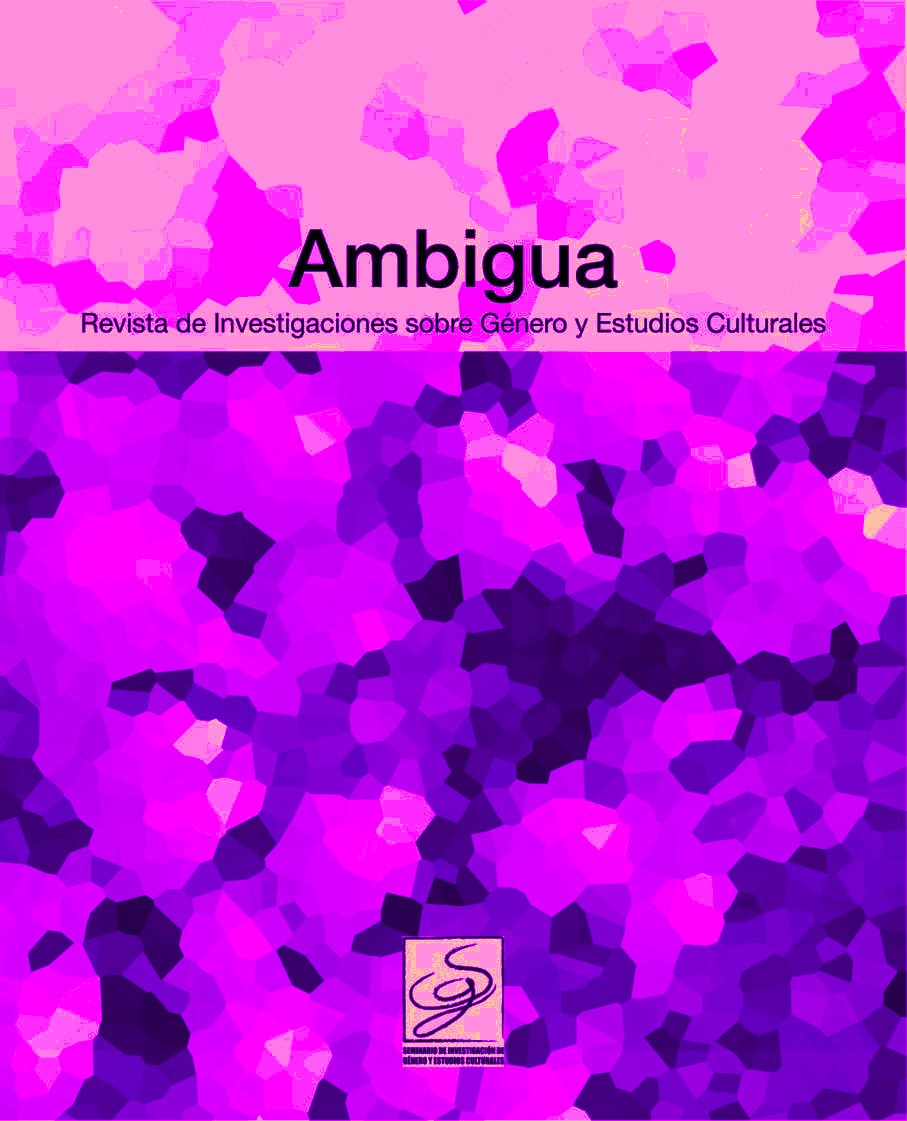Poeta and poeto: dissidences in the children’s poetry of Gloria Fuertes.
DOI:
https://doi.org/10.46661/ambigua.10618Keywords:
Litterature, 2oth Century, Spain, Poetry, Children, Subversion, Gender, DissidencesAbstract
This article focuses on the poetry of Gloria Fuertes, a Spanish poet with an extensive work typically divided into children's poetry and poetry for adults. It was the former that brought Fuertes considerable media success, while the latter was often pushed to the shadows. However, in recent years, critics have begun to study her poetry for adults to highlight its importance in the 20th Century literary history. Our article has a dual objective: on one hand, we aim to show to what extent Gloria Fuertes' poetry, which can be considered as a dissident poet, has a subversive character regarding gender roles and sexual diversity. To this end, several poems will be analyzed revealing the strong critique of the establishment under Franco’s Regime that the poet carried out in all her work. On the other hand, focusing on gender topics will allow us to understand all her poetry forms as a continuum, a whole in which the division between children's poetry and poetry for adults dissolves, as both share a subversive character.
Downloads
References
BUTLER, Judith. El género en disputa. Barcelona: PAIDÓS, 2007.
CAMPOS, Ricardo. "La construcción psiquiátrica del sujeto peligroso y la Ley de Vagos y Maleantes en la España franquista (1939-1970)". Culturas Psi, n.o 7 (2016): 9-44.
CASTRO, Elena. Poesía lesbiana queer. Barcelona: ICARIA, 2014.
FUERTES, Gloria. Versos fritos. Madrid: SUSAETA, 2008.
FUERTES, Gloria. Los mejores versos de Gloria Fuertes. Madrid: SUSAETA, 2009.
FUERTES, Gloria. Obras incompletas. Madrid: CÁTEDRA, 2017.
GAHETE MUÑOZ, Soraya. "Ser homosexual durante el franquismo. Su rastro en los expedientes del Juzgado Especial de Madrid para la aplicación de la Ley de Vagos y Maleantes (1954-1956)". Cuadernos de Historia Contemporánea, 43 (2021): 185-200. https://doi.org/10.5209/chco.78177
GILBERT, Sandra y GUBAR, Susan. The Madwoman in the Attic: The Woman Writer and the Nineteenth-Century Literary Imagination. New Haven y Londres: YALE UNIVERSITY PRESS, 1984.
GONZÁLEZ DURO, Enrique. Los psiquiatras de Franco. Barcelona: PENÍNSULA, 2010.
MAKRIS, Mary. "Trascending Bounderies: Gloria Fuertes's Poetry for Children and/or Adults". En In Her Words: Critical Studies on Gloria Fuertes, editado por Margaret Helen Persin, 221-241. Lewisburg: BUCKNELL UNIVERSITY PRESS, 2011.
MOLINA FOIX, Vicente. "Gloria y los santos inocentes". El País, 8 de diciembre de 1998.
MORENO, María Paz. "Gloria Fuertes y la superación del estereotipo de la escritora loca". En Españolas del siglo XX promotoras de la cultura, editado por María José Jiménez Tomé e Isabel Gallego Rodríguez, 286-312. Málaga: CENTRO DE EDICIONES DE LA DIPUTACIÓN DE MÁLAGA, 2004.
OSBORNE, Raquel, ed. Mujeres bajo sospecha: memoria y sexualidad, 1930-1980. Madrid: FUNDAMENTOS, 2012.
QUANCE, Roberta. "Hago versos, señores". En Breve historia feminista de la literatura española, editado por Iris Zavala, 5: 185-210. Barcelona: ANTHROPOS, 1998.
VILA-BELDA, Reyes. Gloria Fuertes: poesía contra el silencio. Madrid y Frankfurt: IBEROAMERICANA VERVUERT, 2017a. https://doi.org/10.31819/9783954876167
VILA-BELDA, Reyes. "La contradictoria recepción de la poesía de Gloria Fuertes". Prosemas n.º 3 (2017b): 43-66. https://doi.org/10.17811/prep.3.2017.43-66
Downloads
Published
How to Cite
Issue
Section
License
Copyright (c) 2024 Yaiza Palomar Sánchez

This work is licensed under a Creative Commons Attribution-NonCommercial-ShareAlike 4.0 International License.
The authors agree with the following:
1. Authors retain copyright and grant the journal right of first publication with the work simultaneously licensed under a license Attribution-NonCommercial-ShareAlike 4.0 International (CC BY-NC-SA 4.0) that allows others to share the work with an acknowledgement of the work's authorship and initial publication in this journal.
2. Authors are able to enter into separate, additional contractual arrangements for the non-exclusive distribution of the journal's published version of the work (e.g., post it to an institutional repository or publish it in a book), with an acknowledgement of its initial publication in this journal.
3. Authors are permitted and encouraged to post their work online (e.g., in institutional repositories or on their website) prior to and during the submission process, as it can lead to productive exchanges, as well as earlier and greater citation of published work (See The Effect of Open Access).









